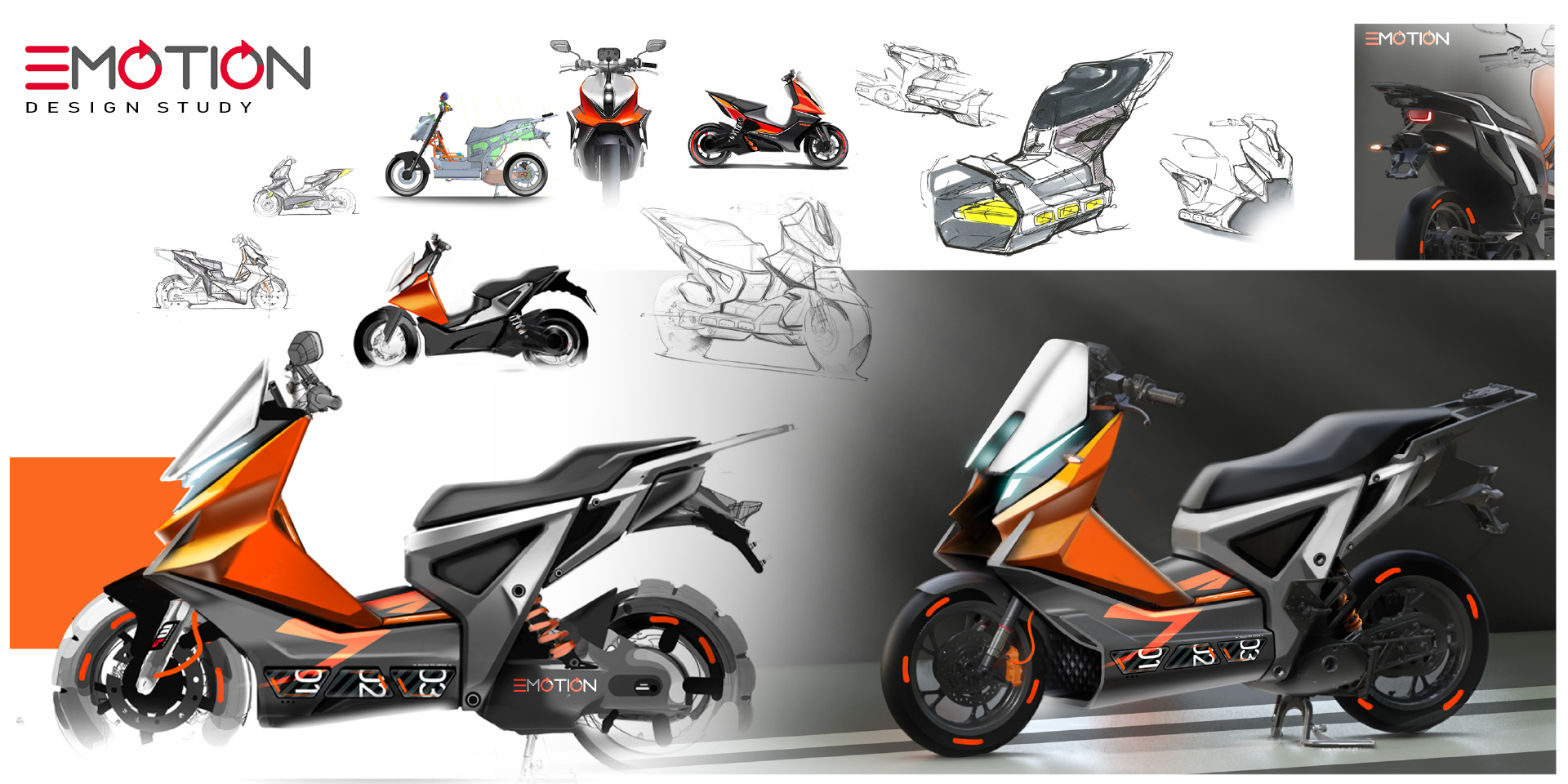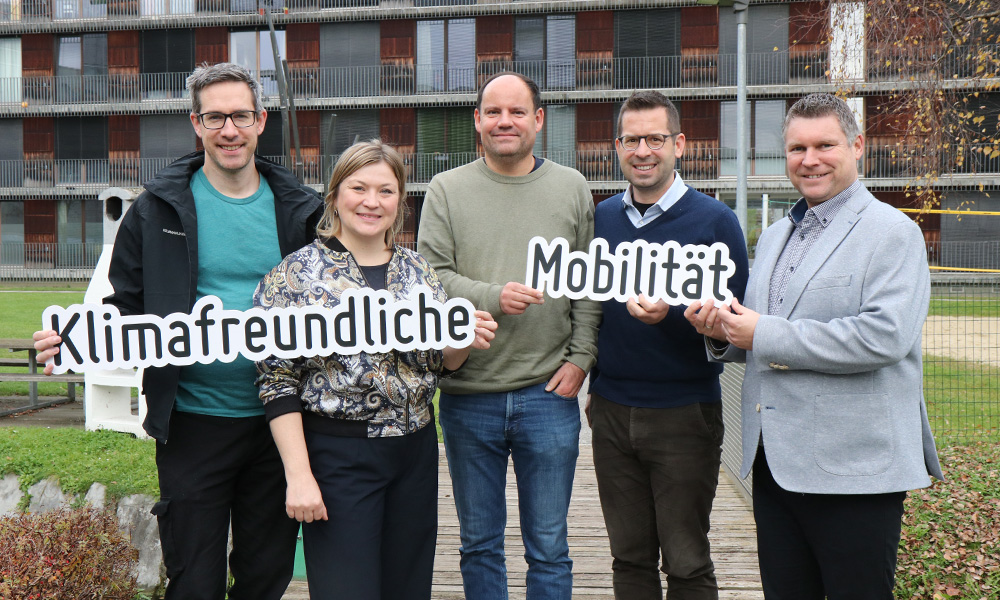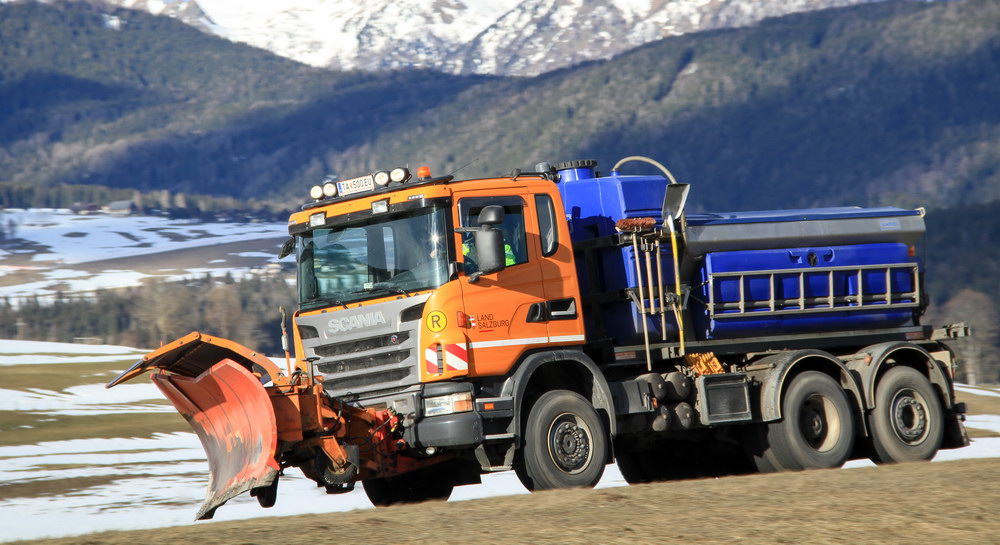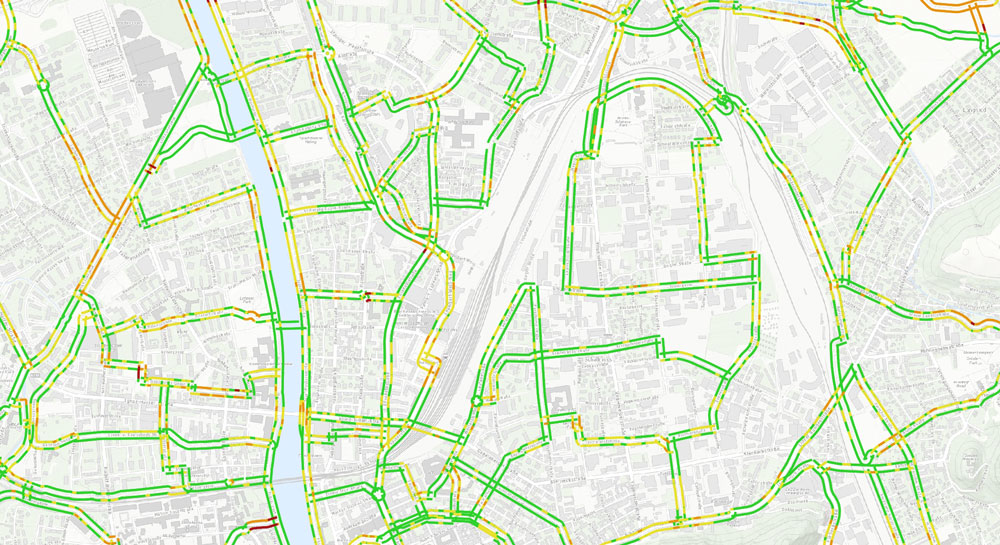
First interim balance: Innovative and climate-friendly mobility on two wheels
As part of the EMotion project, a top-class consortium with Salzburg Research, KTM and other partners is developing a cost-effective, energy-efficient and comfortable electric two-wheeler. A prototype is in the works, and the results of an international study on needs and acceptance are available.
Although the Corona Crisis reduced mobility and thus also the emission of climate-damaging CO2 worldwide by about seven percent, a sharp increase in emissions can probably be expected again soon. By 2030, however, one to two billion tonnes of CO2 should be saved worldwide every year in order to achieve the Paris climate goals and slow down climate change. The transport sector has a not insignificant contribution to make here – and part of a solution can and will be electric mobility.
Innovative e-two-wheeler as a green mobility alternative
The Austrian lighthouse project „EMotion – Electric Mobility in L-Category Vehicles for all Generations” aims to design an innovative and user-friendly mobility solution on two wheels and to implement it as a prototype. Especially in urban areas, clean, energy-efficient and cost-effective electrically powered two-wheelers could make a decisive contribution to the mobility revolution. Since the envisaged vehicles will be used primarily in urban areas, a noticeable reduction in CO2 can be expected there.
For more than a year now, research has been conducted on the development of an electrically powered two-wheeler in the L category specifically for the young (16-18 years) and older (50+) generation. This low-cost, energy-efficient and comfortable vehicle will provide users of conventional combustion engine transport with a viable and environmentally friendly alternative with a reduced environmental footprint for their everyday mobility needs.
International study on needs
Together with the Würzburg Institute of Transport Sciences, Salzburg Research last year surveyed users’ needs and acceptance of these new electric two-wheelers and their potential. This study takes a look into the future of sustainable mobility by expanding the knowledge of mobility behaviour with two-wheelers (such as mopeds and motorbikes) in Europe and investigating the factors for the acceptance of e-two-wheelers for a European market. In order for e-two-wheelers to contribute to more sustainable mobility, potential customer requirements were identified.
A total of 432 participants mainly from Germany, Italy, Austria and Sweden took part in the online survey. The results show that in Europe two-wheelers are mainly used for leisure activities. Reasons beyond the use of two-wheelers as a leisure activity, such as cheaper maintenance and more convenient parking, nevertheless received high importance ratings in the survey. The strong, but not exclusive, focus on the use of two-wheelers as a leisure activity differs from, for example, Asian countries where two-wheelers are used more for commuting and daily errands.
Overall, participants were sceptical about the range of e-bikes. Nevertheless, a high percentage of trips could easily be covered with the currently available battery power. However, the participants do not seem to be aware of this fact. The environmental friendliness of e-two-wheelers was also questioned – an aspect that needs more communication if cities are to move towards more sustainable mobility concepts, including e-two-wheelers.
Some results can be found on the EMotion website. Detailed results of the survey will be published soon in the Sustainability Journal.
8-month field test in 2022
In the course of the research work, a prototype will be developed by the participating project partners, which will subsequently be tested in an eight-month field test. Salzburg Research will organise and evaluate this field test, in which users will test the newly developed two-wheelers and determine their potential. This field test is planned for 2022. The basis for the collection and analysis of the data generated during the field test is the Flow Motion platform developed by Salzburg Research.
The concept pursued in EMotion is based on a comprehensive portfolio of technological solutions in the areas of innovative lightweight construction and component arrangement, highly efficient electric drive and charging components, and usability. The project partners are pursuing three goals in particular: (1) a significantly more efficient use of resources in relation to currently available and comparable vehicles, (2) lightweight construction for outstanding driving performance and (3) an innovative, user-centred human-machine interface with an integrated information system. The aim is to provide users with a completely new mobility experience.
EMotion is funded by the Climate and Energy Fund (KLIEN) in cooperation with the Federal Ministry for Climate Protection, Environment, Energy, Mobility, Innovation and Technology (BMK) within the framework of the 2nd call for proposals “Zero Emission Mobility”. More information can be found at https://www.emotion-project.at/.








